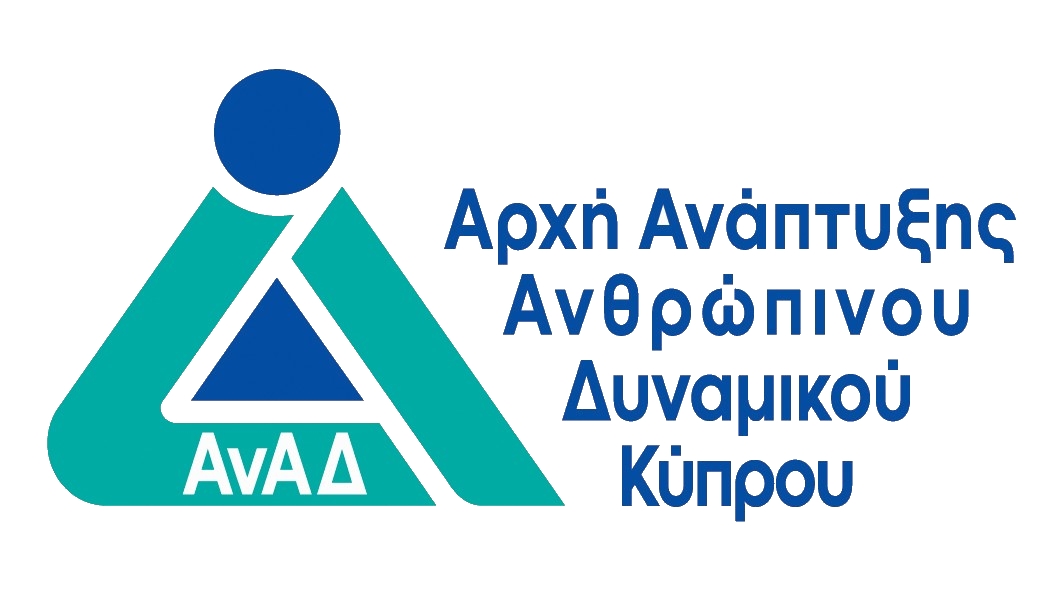
Advanced Taxation of Passive & Investment Income
- Χρηματοοικ. Ασφαλιστικά Τραπεζικά - Λογιστικά/ Έλεγχος/ Φορολογικά - Νομοθεσία, Νομική & Δικηγόροι

ΠΕΡΙΓΡΑΦΗ
This advanced course explores the taxation of intercompany dividends, interest, intellectual property, and immovable property under Cyprus tax law, EU directives, and tax treaties. It equips tax professionals, lawyers, and business leaders with practical knowledge for cross-border structuring and compliance.
This advanced course provides a comprehensive and practical examination of the taxation of passive income, specifically dividends, interest, royalties, and real estate income under Cyprus tax law, EU directives, and double tax treaties. Designed for tax professionals, lawyers, and business leaders involved in structuring or managing cross-border income flows, the course offers a technically detailed and strategically focused learning experience.
Participants will analyse how passive income earned or paid through Cyprus is treated for tax purposes, with reference to the Income Tax Law, the Special Defence Contribution (SDC) regime, recent withholding tax changes, and participation exemption criteria. Modules cover the Cyprus implementation of the EU Parent-Subsidiary and Interest & Royalties Directives, the OECD Model Tax Convention (Articles 10–13), and ATAD provisions on hybrid mismatches and interest limitation. Special emphasis is placed on beneficial ownership, economic substance, and anti-abuse rules that impact access to exemptions and treaty benefits.
Through case-based discussions, learners will explore holding structures for inbound/outbound dividends, financing arrangements involving group treasury entities, IP licensing under the Cyprus IP Box regime, and the taxation of income from Cyprus-situated immovable property. ECJ jurisprudence, local circulars, and practical compliance expectations are integrated throughout.
Cyprus is a hub for holding, financing, and IP companies that generate significant passive income, and employers in legal, tax, and advisory roles must ensure their teams are equipped to navigate the increasing complexity and risk surrounding such income streams.
Key changes in Cyprus and EU tax policy have created a pressing need for training:
- The tightening of participation exemption rules for dividends and interest (Modules 1–4,) includingn substance and taxation tests.
- Expanded withholding tax obligations on passive income paid to blacklisted jurisdictions (2022–2023 amendments).
- The growing importance of beneficial ownership and non-abusive structuring to access tax treaty and Directive benefits.
- New documentation and audit readiness requirements under local and OECD-aligned transfer pricing rules for passive income flows.
- The need for defensible use of the Cyprus IP Box regime (Modules 5–6) and compliant treatment of real estate income (Module 7) under domestic and treaty rules.
- Employers want their legal and tax teams to proactively manage risk and maximise tax efficiency while remaining compliant with evolving local and EU requirements.
- Anticipate and respond to regulatory scrutiny on passive income channels.
- Structure dividend, interest, and royalty flows in a defensible and efficient manner.
- Prepare robust documentation to withstand audits and support treaty claims.
- Advise with confidence on the substance, residency, and reporting obligations attached to passive income planning.
ΣΕ ΠΟΙΟΥΣ ΑΠΕΥΘΥΝΕΤΑΙ
suitable for
This course is designed for professionals employed in tax advisory firms, law firms, accounting practices, corporate service providers, and finance or legal departments of companies engaged in cross-border structuring, holding, financing, or intellectual property management through Cyprus. Participants must be actively involved in the planning, analysis, or compliance of passive income streams such as dividends, interest, royalties, or immovable property.
ΠΕΡΙΣΣΟΤΕΡΕΣ ΠΛΗΡΟΦΟΡΙΕΣ
Course content
UNIT 1: Taxation of Intercompany Dividends under Cyprus Tax Law, Tax Treaties and EU Law – Part A
- Cyprus domestic rules on dividend income: Overview of the general non-taxability of dividend income for Cyprus tax resident companies under the Income Tax Law, subject to specific exceptions under the Special Defence Contribution (SDC) regime.
- Participation exemption regime: Conditions for exemption from SDC on dividend income – including minimum holding period, passive income test, and subject-to-tax test.
- Deemed dividend distribution rules: Explanation of provisions applicable to Cyprus-resident companies with undistributed profits to Cyprus-resident shareholders.
- Anti-abuse measures related to dividend income: Domestic anti-avoidance provisions, including GAAR, application of “non-genuine arrangements”.
- Outbound dividends from Cyprus: No withholding tax on dividend payments made by Cyprus companies to non-resident shareholders.
- Inbound dividends to Cyprus: Treatment of dividends received from both EU and non-EU jurisdictions, and potential SDC implications.
UNIT 2: Taxation of Intercompany Dividends under Cyprus Tax Law, Tax Treaties and EU Law – Part B
- EU Parent-Subsidiary Directive: Scope, requirements, and implementation in Cyprus; analysis of minimum 10% participation threshold and minimum holding period.
- Anti-abuse rule under the Directive: Conditions under which benefits of the Directive may be denied, including artificial arrangements and principal purpose tests.
- Interaction between EU law and Cyprus domestic law: Harmonisation of participation exemption regime with EU law, including ECJ jurisprudence (e.g., the Danish Cases).
- Tax treaty relief for dividends: Key features of Cyprus’s extensive treaty network, treaty withholding tax rates, and application of the OECD Model Tax Convention Article 10.
- Beneficial ownership concept: Evolving interpretation under both treaty and EU contexts, and practical implications for holding structures involving Cyprus entities.
- Case studies and practical application: Analysis of common holding structures through Cyprus for inbound and outbound dividend flows, with reference to risk
UNIT 3: Taxation of Interest under the Cyprus Tax Law, EU Law and Tax Treaties – Part A
- Domestic taxation of interest income: Distinction between active and passive interest income under the Cyprus tax framework (Income Tax Law vs. SDC Law).
- Interest deductibility for payer companies: Analysis under Cyprus corporate income tax rules, transfer pricing principles, and potential limitations post-ATAD implementation.
- Withholding tax on outbound interest payments: General absence of withholding tax on outbound interest, with reference to recent changes effective from 2022 (for blacklisted jurisdictions).
- Arm’s length principle and transfer pricing: Requirements under Cyprus TP rules for intercompany interest rates, with emphasis on OECD Guidelines alignment.
- Timing and characterisation of interest: Rules on accrual basis, capitalised interest, and related-party transactions.
- Interaction with the EU Interest and Royalties Directive: Scope and limitations of the Directive as implemented in Cyprus, including anti-abuse
- provisions.
UNIT 4: Taxation of Interest under Cyprus Tax Law, EU Law and Tax Treaties – Part B
- Interest income received by Cyprus companies: Tax treatment depending on the nature of activities (active vs. passive), including exemption or inclusion in taxable base and SDC application.
- Application of tax treaties: Analysis of Cyprus treaty provisions on interest (Article 11 of OECD MTC), typical withholding tax rates, and treatment of beneficial ownership.
- Beneficial ownership and substance: Consideration of recent OECD and ECJ developments impacting access to treaty benefits.
- Hybrid mismatch and interest limitation rules: Relevance of ATAD interest limitation provisions to inbound and outbound interest flows, including the 30% EBITDA rule.
- Interest flows in common financing structures: Use of Cyprus entities in group treasury or financing hubs; review of tax planning opportunities and risk exposure.
- Compliance and documentation: Local file and master file requirements, as well as practical TP documentation expectations for intercompany financing arrangements.
UNIT 5: Taxation of Intellectual Property under the Cyprus Tax Law, EULaw and Tax Treaties – Part A
- Cyprus IP Box Regime – Overview: Qualifying IP, eligible income, and effective tax rate under the nexus compliant IP box introduced in 2016.
- Definition of qualifying assets and income: Alignment with OECD BEPS Action 5, exclusion of trademarks and marketing-related IP, and computation of nexus fraction.
- Treatment of R&D expenses: Direct connection between eligible expenditures and qualifying income; importance of Cyprus-incurred R&D for preferential treatment.
- Interaction with capital allowances: Depreciation of IP assets for tax purposes and treatment of capitalised development costs.
- Anti-abuse considerations: Use of the IP regime in substance-based structures; restrictions against purely artificial arrangements or offshoring of ownership.
- EU law implications: Compatibility of the Cyprus IP regime with EU State aid rules and principles of free movement; review of relevant Commission and ECJ jurisprudence.
UNIT 6: Taxation of Intellectual Property under the Cyprus Tax Law, EULaw and Tax Treaties – Part B
- Cross-border royalty payments: Absence of withholding tax on outbound royalties when IP is used outside Cyprus; exceptions and recent blacklist provisions.
- EU Interest and Royalties Directive: Implementation in Cyprus and anti-abuse rule for claiming benefits under the Directive.
- Treaty protection for royalty income: Analysis of typical treaty provisions (Article 12 OECD MTC), limitation on source taxation, and beneficial ownership requirements.
- Inbound royalties to Cyprus: Taxation under domestic rules depending on source and treaty relief; role of substance and transfer pricing.
- Use of Cyprus IP Structures in global value chains: Practical examples of IP ownership, licensing, and cost-sharing structures
- through Cyprus.
UNIT 7: Taxation of Immovable Property under Cyprus Tax Law, EU Law and Tax Treaties
- Definition and scope of immovable property: Interpretation under Cyprus domestic law and under tax treaties, including the OECD and UN Models.
- Capital gains tax regime: Application of CGT on disposals of Cyprus-situated immovable property or shares in companies deriving value from such property.
- Taxation of rental income: Distinction between corporate and individual landlords; applicable tax rates, exemptions, and allowances.
- Withholding tax on rent or sale proceeds: Recent amendments introduced WHT on certain outbound property-related payments (from 2023 onwards).
- Treaty allocation of taxing rights: Typical Article 6 and Article 13 treaty provisions concerning property income and capital gains from real estate-rich companies.
- Anti-abuse measures and economic substance: Substance requirements for non-resident owners of Cyprus property; risks under GAAR and treaty LOB clauses.
Πληροφορίες Εκπαιδευτή
Αναλυτικό Κόστος Σεμιναρίου
Για Δικαιούχους ΑνΑΔ
- € 650.00
- € 420.00
- € 0.00
- € 230.00
- € 230.00
Για μη-Δικαιούχους ΑνΑΔ
- € 650.00
- € 0.00
- € 123.50
- € 650.00
- € 773.50
ΠΡΟΓΡΑΜΜΑ ΣΕΜΙΝΑΡΙΟΥ
Τρίτη - 11 Νοε 2025
Ώρα
15:00 - 18:15
ΕΚΠΑΙΔΕΥΤΗΣ:
Χρίστος ΘεοφίλουΤοποθεσία:
OnLine Virtual Classroom
Τετάρτη - 12 Νοε 2025
Ώρα
15:00 - 18:15
ΕΚΠΑΙΔΕΥΤΗΣ:
Χρίστος ΘεοφίλουΤοποθεσία:
OnLine Virtual Classroom
Τρίτη - 18 Νοε 2025
Ώρα
15:00 - 18:15
ΕΚΠΑΙΔΕΥΤΗΣ:
Χρίστος ΘεοφίλουΤοποθεσία:
OnLine Virtual Classroom
Τετάρτη - 19 Νοε 2025
Ώρα
15:00 - 18:15
ΕΚΠΑΙΔΕΥΤΗΣ:
Χρίστος ΘεοφίλουΤοποθεσία:
OnLine Virtual Classroom
Τρίτη - 25 Νοε 2025
Ώρα
15:00 - 18:15
ΕΚΠΑΙΔΕΥΤΗΣ:
Χρίστος ΘεοφίλουΤοποθεσία:
OnLine Virtual Classroom
Τετάρτη - 26 Νοε 2025
Ώρα
15:00 - 18:15
ΕΚΠΑΙΔΕΥΤΗΣ:
Χρίστος ΘεοφίλουΤοποθεσία:
OnLine Virtual Classroom
Τρίτη - 02 Δεκ 2025
Ώρα
15:00 - 18:15
ΕΚΠΑΙΔΕΥΤΗΣ:
Χρίστος ΘεοφίλουΤοποθεσία:
OnLine Virtual Classroom
 Ελληνικά
Ελληνικά  English
English



 Αγγλικά
Αγγλικά
 21 ώρες
(
7 μέρες
)
21 ώρες
(
7 μέρες
)






























